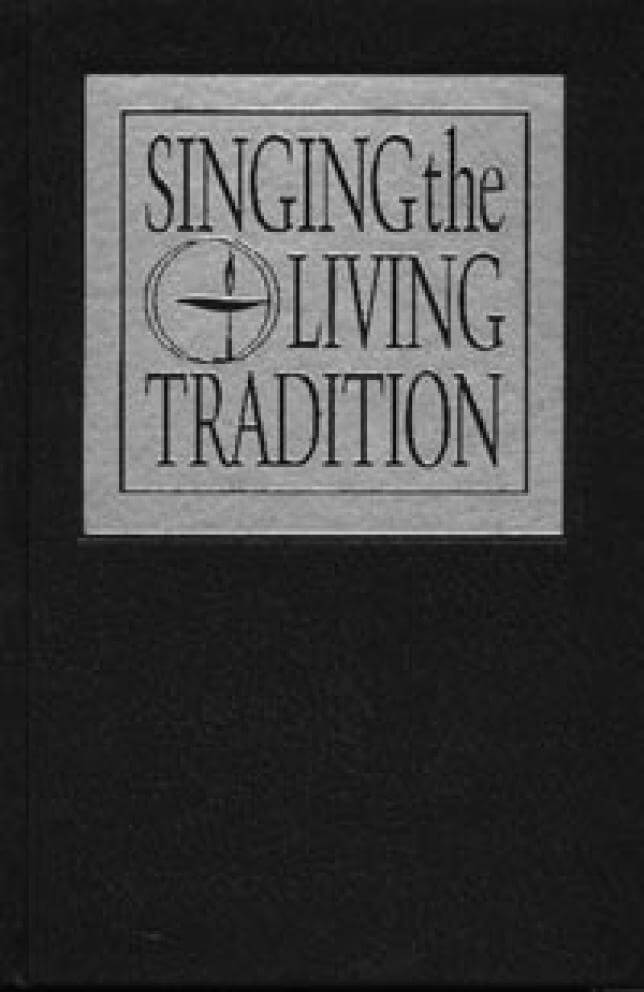Activity 4: What Are Our Sacred Texts?
Part of Building Bridges
Activity time: 15 minutes
Materials for Activity
- Newsprint, markers, and tape
- A variety of sacred texts, including the Bible, Qur'an, Bhagavad Gita, Dhammapada, Tao Te Ching
- UUA resources such as the hymnbooks Singing the Living Tradition and its supplement, Singing the Journey; the book A Chosen Faith and Unitarian Universalist Pocket Guide, and the pamphlet "Meet the UUs"(PDF)
- A selection of secular books that might inspire, such as the Dr. Seuss book Oh, The Places You'll Go!, The Little Prince, The Prophet, Chicken Soup for the Soul; include science books and books of paintings or photographs
- Optional: A poster of the Principles and Sources
Preparation for Activity
Write the six Sources of Unitarian Universalism on newsprint, and post. Or, display a poster that names the Sources:
- Direct experience of that transcending mystery and wonder, affirmed in all cultures, which moves us to a renewal of the spirit and an openness to the forces which create and uphold life;
- Words and deeds of prophetic women and men which challenge us to confront powers and structures of evil with justice, compassion, and the transforming power of love;
- Wisdom from the world's religions which inspires us in our ethical and spiritual life;
- Jewish and Christian teachings which call us to respond to God's love by loving our neighbors as ourselves;
- Humanist teachings which counsel us to heed the guidance of reason and the results of science, and warn us against idolatries of the mind and spirit.
- Spiritual teachings of earth-centered traditions which celebrate the sacred circle of life and instruct us to live in harmony with the rhythms of nature.
Optional: Read a variety of Unitarian Universalist statements about revelation and from whence it can come. Two UUA pamphlets available online are:
- "Our Unitarian Universalist Faith: Frequently Asked Questions," by the Rev. Alice Blair Wesley
- "Unitarian Universalist Views of the Bible," edited by the Rev. Tom Goldsmith.
Description of Activity
Participants examine sources that bring them inspiration and meaning, and understand that UUs do not have one wisdom source, but many.
Tell the youth an essay by the Rev. Alice Blair Wesley, "Our Unitarian Universalist Faith: Frequently Asked Questions," talks about the texts from which Unitarian Universalists draw inspiration. The Bible is specified as one source. However, Rev. Wesley continues:
We do not, however, hold the Bible-or any other account of human experience-to be either an infallible guide or the exclusive source of truth. Much biblical material is mythical or legendary. Not that it should be discarded for that reason! Rather, it should be treasured for what it is. We believe that we should read the Bible as we read other books-with imagination and a critical eye. We also respect the sacred literature of other religions. Contemporary works of science, art, and social commentary are valued as well. We hold, in the words of an old liberal formulation, that "revelation is not sealed." Unitarian Universalists aspire to truth as wide as the world-we look to find truth anywhere, universally.
Ask the youth how these ideas resonate with them. Do they feel they can find truth anywhere?
Lay out the sacred texts you have collected. Tell them these are all texts that are sacred to one or more major world faiths. Which do they recognize? Do they know which text goes with which faith(s)? Which have they read?
Now lay out the UUA resources and the secular resources you have collected.
Ask:
- What has inspired you? Have you read something that inspired you or brought insight about yourself or the world?
- Did you ever have a "eureka" experience from a surprising source? From a joke? From an advertisement? From a mistake? From a comic book? A magazine? A painful experience? What about a children's book? Does this make that source sacred? Why, or why not?
- What books were most important to you when you were little? What was important about them? What message did they convey?
Refer to the poster or newsprint list of the Sources. Have a volunteer read each Source aloud. Invite youth to share examples for each of the Sources and stories of times they found the Sources meaningful in understanding their world, or helpful to answer life's tough questions.
Summarize:
In the life-giving tradition of our liberal faith, we keep our minds and our hearts open, ready to recognize truth from whatever source it may come.
